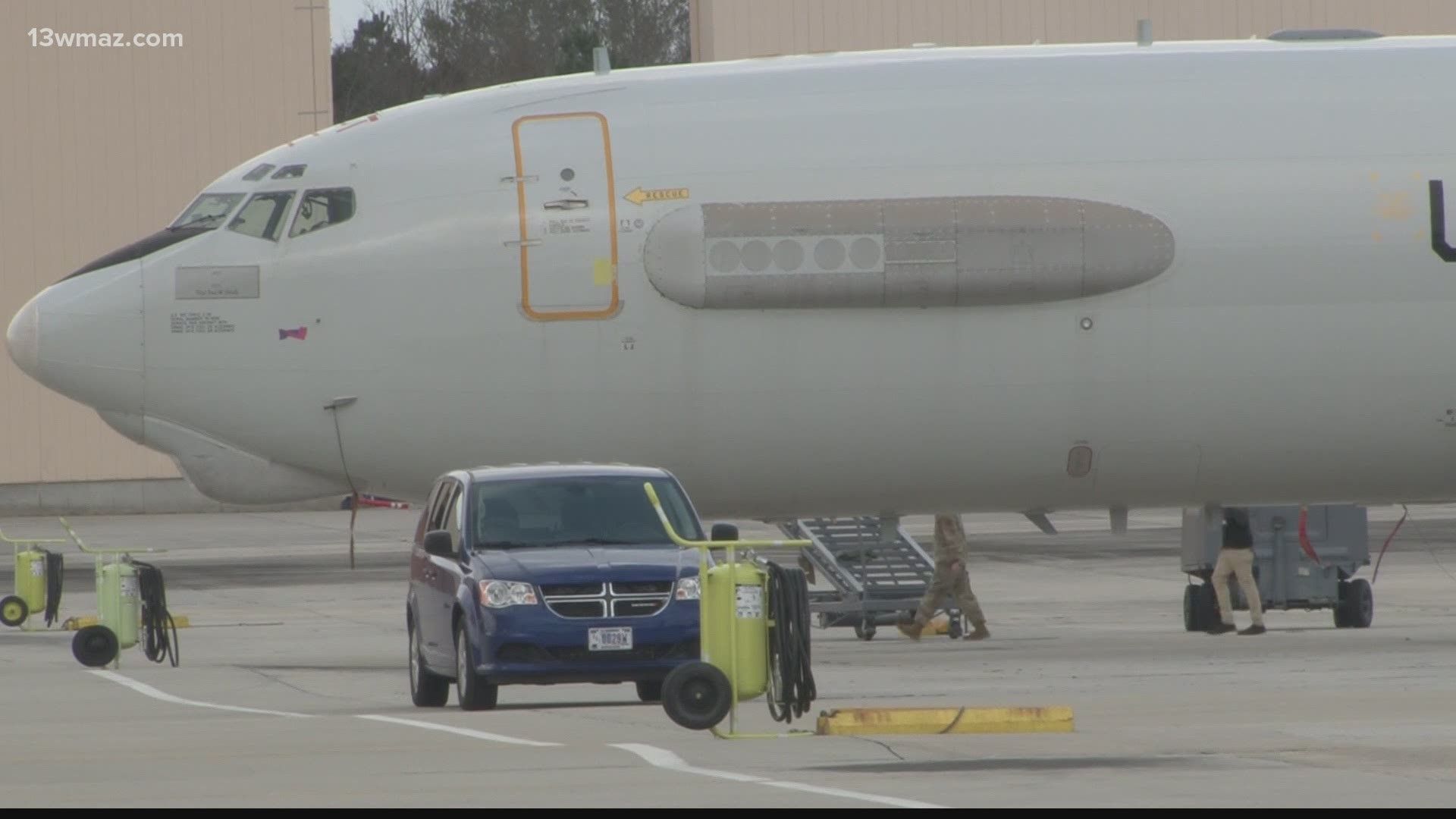WARNER ROBINS, Ga. — Robins Air Force Base is getting ready to say goodbye to JSTARS and welcome four new high tech missions.
It's all part of President Biden's defense budget, which was released Friday.
The future of the JSTARS program has been uncertain for nearly a decade.
In 2014, we reported the Air Force was working on creating a smaller more modern plane for the program. Then, leaders said about 380 people's jobs could be at risk.
In 2017 and 2018, debate continued in Washington D.C. over the program's future. Then, Senator David Perdue and Representative Austin Scott disagreed over where funding should go. Scott wanted to build a new fleet of JSTARS planes to continue the current mission. Perdue pushed to phase out JSTARS and phase in ABMS as its replacement.
Reporter Ashlyn Webb had an exclusive interview about the changes wit Representative Austin Scott. She also spoke with military officials from Robins, the Georgia Department of Defense and Georgia Air National Guard.
Representative Austin Scott says the changes will put Robins on the cutting edge and set its future for decades to come. Eventually, the base will be the headquarters for the Advanced Battlefield Management System (ABMS).
Scott says the Air Force needs those new programs to respond to potential threats from China and Russia.
"If we're going to be able to defend against the systems of tomorrow, we're going to have to have the systems tomorrow," Scott said.
ABMS is a combination of satellite and space-based technology that will connect ground troops, aircrafts and command units.
Major General Thomas Grabowski, commander of the Georgia Air National Guard, compared it to ordering an Uber.
"You touch a button your cell phone. It goes up to a satellite. It goes down an talks to all the other taxis and says okay. We're going to this taxi to get this person. That's sort of what ABMS is," Grabowski said. "It's almost like Uber for war. We use that with a Waze map and we find efficient uses through technology to fight our nations wars against peer to peer advisories without having to put our sons and daughters in big giant metal tubes that are not defendable in a world of hypersonic weapons."
But while Robins will welcome four new missions, they will phase out the legacy technology to do it.
Representative Scott says they're looking to draw down four JSTARs units and gradually retire the rest of the fleet over the next decade.
So what does this mean for people working with JSTARS?
"It means they're going to have an opportunity to stay at Robins Air Force Base and work on some of the most technologically advanced and sophisticated systems in the world," Scott said.
"There is going to be a space for everyone of the airmen that are working on Robins Air Force Base as part of the JSTARS mission to continue to work on the base to contribute to the fight," said Major General Thomas Carden, Adjutant General of the Georgia Department of Defense.
They plan to gradually shift around 2,000 active duty and Georgia Air National Guard airmen to those new missions. The new high tech missions will also bring higher paying jobs.

